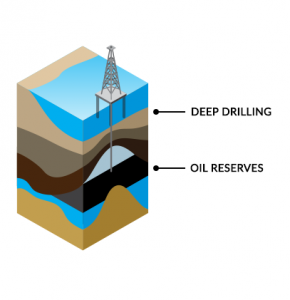All Categories
Featured
Table of Contents
Job Guide - Geophysicist in Hilton WA 2020
This work is progressively contracted out, so consultancies provide another source of employment. Consultancy companies vary in size, from extremely small business to large multinationals. Some consultancies are quite specialised in utilizing specific geophysical strategies or working in particular locations, while others use a more diverse series of services to their clients.
The extraction of gas from garbage dump websites is another area of employment and this may grow in the future. Exploration companies might carry out work for building firms, public utility, mining companies and environmental agencies, so geophysicists might be used in any of these settings. Other employers include: geological surveysgovernment bodies and agenciesuniversities and research institutes.


Vacancies might be listed in the oil and gas sector press. Recruitment is affected by oil rate changes and the level of competition for positions varies depending on this. Careers Days, which cover the complete variety of geoscience careers and are typically participated in by a variety of essential industry employers, are run by The Geological Society.
Geophysical Survey Flashcards in Maddington Aus 2022
A few of the large oil and gas companies use a full two-year structured training programme across the breadth of geophysics, including the opportunity to experience work in different teams prior to specialising in one area. Your training might consist of deal with: existing wellsmagnetic and gravitational prospective field information analysisresearchrock analysis. However, it's more typical for your preliminary training to be provided on the task.

There may be a probationary period during which you work along with a skilled coworker. Competency-based appraisals happen routinely in many firms. In smaller sized firms, and for academic posts, there is unlikely to be any formal training - you'll be expected to begin work straightaway and get skills as you go along.
If you work for a smaller business, you might find that you require to take duty for setting up and moneying your own advancement and training. If you have a geology degree, subscription of The Geological Society can be helpful for networking and for keeping up to date with the industry.
How To Become A Geophysicist in Cannington Western Australia 2020
You may also find it useful to join the PESGB (The Petroleum Expedition Society of Great Britain, which has a geophysics special interest group. After a probationary period, and as soon as you've acquired some experience, you could advance to senior geophysicist, then team leader and after that into a senior function in management.
The ease of motion in between functions depends on the company structure. Study at Masters or Ph, D level in a subject related to geophysics or geosciences may assist with your career advancement and progression. The employment market within the oil and gas market is really depending on cost and this may impact your chances for career development.
However, not all jobs are reliant on the oil and gas markets. For skilled geophysicists, freelance consultancy uses a great path for profession development. You can likewise specialise in a particular area of geophysics. As a geophysicist, you're most likely to have several jobs throughout your working life. Worldwide mobility is vital for handling peaks and troughs in various countries at various times.
Uses For Geophysical Data in Shenton Park Oz 2020
From geophysics, it's possible to concentrate on seismology (finishing more training to become a seismic interpreter) or to move into associated locations such as engineering geology or threat prediction.
Choosing what to study in college is a tough choice. Even if you know that your field of interest depends on science, what program of study is best for you? If you make the choice to significant in physical and life sciences and pursue a profession as a geophysicist, you're getting ready for an amazing and profitable occupation.
The first step to accomplishing your goal of becoming a geophysicist is making a degree. Even for entry-level positions in the field of geoscience, you'll need a bachelor's degree (a geophysicist college degree) from a recognized college or university. Geophysicists must be able to: evaluate rocks, photographs, and other pieces of data perform research study both in the field and in laboratories create maps and charts of their findings write reports To accomplish all this, students need a specialized education for geophysicist careers.
As stated above, you'll need a bachelor's degree in geoscience or a related discipline, such as a physical science or a natural science, to land an entry-level job. However students can likewise prepare by learning subjects like: Biology Chemistry Computer technology Engineering Mathematics Physics The above geophysicist majors provide a more generalized approach to a single scientific discipline, however many programs need trainees to take several geology course.
Latest Posts
Geophysical Survey Methods in Champion Aus 2021
Geophysical Survey - Salisbury Archaeology in Hocking Australia 2021
What Can I Do With A Major In Geophysics? in Carine Australia 2023